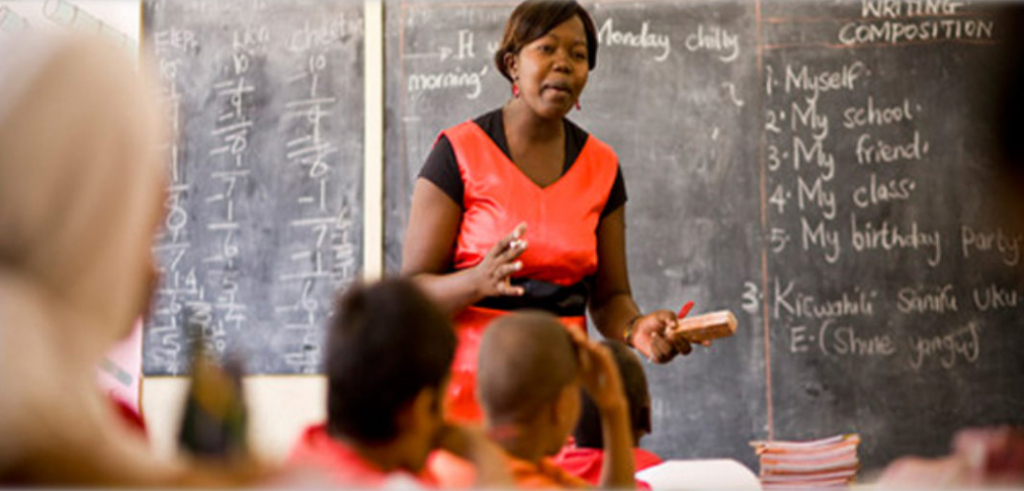As investors in education build new schools across communities in Nigeria and the government brags about the increase in enrollment, little or no attention is been made to probe into the teachers’ welfare and how they feel over poor wages.
In this Special Report, MAWA Foundation spoke to teachers in different schools to find out how much they collect as wages and how they feel about taking up a job as a teacher. In the course of our interaction with the teachers, they told us that they are one of the least-paid workers while describing the teaching profession as the last option of a man who did not find any other paying job to do.
At Queens and Kings International College, Ajaka in Igalamela Local Government Area of Kogi State, Primary School Teachers who spoke to our officials, say they are being paid monthly wages of N5k. The teachers told MAWA, despite being paid as small as N5k, the school does not pay them the entire sum but pays N1k weekly.
“I am a teacher at the Queens and Kings International College, my monthly wage is N5k, and even at that, we are not paid the total money, we are paid N1k weekly, it is very annoying being a teacher in Nigeria,” one of the teachers said.
Teachers at the Secondary section of the Queens and Kings International College, who spoke to MAWA, said BSc holders are paid N7k and N8k monthly wages respectively depending on the importance of the subject they teach.
Teachers who are all BSc holders at Madonna Secondary School, Ode Memorial College, and Higher Grammar School that spoke to MAWA Foundation said they are paid N8k monthly wages, while they respectively recounted how they struggle to perform their duties as a result of poor wages.
In the course of our interviews with the teachers at Higher Grammar School Ajaka, we found that a teacher with a Master’s Degree is paid N10k monthly salary.
At All Saints Nursery and Primary School, Dutse Alhaji Abuja, Bwari Area Council, Abuja, teachers who spoke to MAWA Foundation, lamented how they have been underpaid for the past five years. The teachers disclosed that BSc holders are paid N19k, while National Diploma and NCE holders are paid N13k. They, however, said the worse place to be a teacher is in Nigeria.
“We are aware, the government and private sector are constantly in the discussion of improving education, but how many of these persons talk about teacher’s wages which are the most fundamental in all the reforms in education”, a teacher told MAWA.
“I can assure you, no teacher in this school including the headmistress is happy about the poor wages we get, we are here because we have no other option, otherwise there is no point wasting our time here”, a female teacher told, MAWA team.
In Kaduna State, we found that teachers at Moini School-Alkali road, are paid N45k and N50k respectively. However, our interactions with the teachers revealed that some who teach in smaller schools receive N15k, N20K, and N25k respectively as monthly wages depending on your qualification.
In Benue State, at Shepherd Heritage Academy and Makurdi International School, teachers who have BSc qualifications are being paid N30k monthly wages. This is even as one of the teachers who spoke to the MAWA Foundation pointed out that the workload is too much with little wage taken as a reward.
In Nasarawa state, at Flobam British School, teachers are paid N25K and N20k respectively depending on their qualifications and years of service. However, teachers in the government’s own schools are paid N35k and N40k respectively.
The experience in Plateau State is not different, at the Glory International School, in Jos, the state capital. A teacher who spoke to MAWA Foundation said teachers with BSc qualifications are paid N15k, while those with NCE are paid N8k respectively. This is even as he pointed out that the volume of work is huge for teachers to carry.
In all the teachers that spoke to MAWA Foundation, the ones at Rich Model School, Eneka at Obio Akpo Local Government Area of Rivers State are the worse hit and most depressed.
The teachers at Rich Model School, Port Harcourt, narrating how depressed they are over poor wages, said they are paid N25k as secondary school teachers and N15 as primary school teachers monthly as wages.
The teachers told MAWA Foundation that even at small wages of N25k, they teach six subjects, three in junior classes and three in senior classes.
“Each time I remember, my monthly wages is N25k for teaching six subjects from Jss1 to SS3, I feel very depressed and angry”, a teacher told MAWA Foundation
“Apart from teaching six subjects for N25k monthly wages, we must submit lesson note every Friday, and any teacher that fails to submit gets N1k deducted from his salary”, this is not fair to teachers that put in all their best to teach the kids despite poor wages,” a teacher told MAWA team.
The development is not different from Lagos, at Linsy School, Igbo-Ifon in Lekki, teachers who have BSc qualification are paid N30k while those with NCE are paid N20k monthly.
In Lokoja the Kogi State capital teacher are struggling to keep up with their job while narrating the trauma they go through teaching. A teacher at Global Champion, Zango Daji told MAWA that she gets N15k as monthly wages. Another female teacher at Christ Redeemers School, opposite Army Barracks say despite having a BSc qualification her wages is N15k monthly.
Teachers in Nigeria have continued to teach under depressed conditions particularly the poor wages they receive, despite the existence of the Nigeria Union of Teachers (NUT) which was created as a united front for practitioners of the teaching profession, with a core objective of improving the welfare of the teachers for a better education.
As the Nigerian Labour Union, begins to press on the state for a minimum wage, the core question becomes, who speaks for the teachers? there is no notable reform that can be carried out in the education sector, without a national policy or legislation that will ensure teachers especially those in private schools are paid better wages that will catalyst their efforts in teaching the kids who are the primary stakeholders in the education.
There is an urgent need to have a uniform minimum wage for teachers in both private and government-own schools, in that way teachers will have better wages and will not struggle to do the job which the profession demands.

